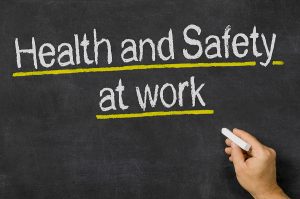It is crucial that employers define a safety-sensitive position in their workplace. This definition should be clearly summarized in the job description of the position. And this job description should be clearly announced to applicants and employees. We have previously written about the importance of establishing a link between the job description and not being under the influence of drugs and/or alcohol. There are five major reasons to establish this link:
1. Ensuring Safety: Safety-sensitive positions are those where an employee’s performance can directly affect their safety and the safety of others. Clearly defining these roles helps ensure that appropriate safety measures are in place to prevent accidents and injuries. See this prior blog post for a suggested list of safety-sensitive positions.
2. Compliance with Regulations: Various laws and regulations require employers to identify and manage safety-sensitive positions. For example, the Department of Transportation (DOT) has specific guidelines for safety-sensitive roles in industries like aviation, railroads, and trucking.
3. Effective Drug and Alcohol Testing: Employees in safety-sensitive positions are often subject to more stringent drug and alcohol testing policies. This helps to ensure that individuals in these critical roles are not impaired, thereby reducing the risk of accidents and maintaining a safe work environment. This is where a properly implemented random drug and alcohol testing program is crucial in sending a very powerful message to the workforce that being under the influence of drugs and/or alcohol will not be tolerated.
4. Liability and Risk Management: By clearly defining safety-sensitive positions, employers can better manage their liability and reduce the risk of costly incidents. This includes potential legal and financial repercussions from accidents involving impaired employees.
5. Employee Awareness and Training: When safety-sensitive positions are well defined, employees are more aware of the expectations and responsibilities associated with their roles. This can lead to better adherence to safety protocols and more effective training programs.
In summary, defining safety-sensitive positions is essential for maintaining a safe workplace, ensuring regulatory compliance, managing risks, and fostering a culture of safety among employees.
A recent communication from the Current Consulting Group also highlights why defining safety-sensitive positions is important. This article is summarized below:
“The most talked about reason for designating positions as safety-sensitive is due to medical and/or recreational marijuana laws. It has become increasingly important to define safety-sensitive positions given the number of states with legal medical and/or recreational marijuana. While some states offer certain protections to employees for off-duty use, others include a carve out for employee in a “safety-sensitive” position that prohibits an individual in a certain classified designation from these protections. Let’s review a couple of examples.
The article mentions that in many states there is a defense for employees using marijuana. HOWEVER, these protections are often not provided to individuals in safety-sensitive positions. This means any job that includes tasks or duties that the employer reasonably believes could affect the safety and health of the employee performing the task or others is not provided the protections offered by the state’s marijuana law.
The Current Consulting Group article notes another important factor includes asking employees about their use of prescription medication. When a job duty is designated as safety-sensitive, employers have more latitude to ask questions about drug use.
Marijuana may be legal in many states, but for the most part employers do not need to accommodate the possession, use, or being under the influence of marijuana on company property or company time, even if the employee has a prescription for medical marijuana or recommendation for the use of marijuana – safety sensitive position or not. However, it is essential that employers be aware of any applicable laws and details surrounding this issue based on their state(s) of operation.
Lastly, workers in safety-sensitive positions may be subject to a more inclusive range of testing such as random testing. In other circumstances a company may only choose to test employees working in hazardous positions. In either circumstance, identifying the job functions subject to this higher standard is essential.
James P. Randisi, President of Randisi & Associates, Inc., has been helping employers protect their clients, workforce and reputation through implementation of employment screening and drug testing programs since 1999. This post does not constitute legal advice. Randisi & Associates, Inc. is not a law firm. Always contact competent employment legal counsel. To learn more about the rights of employees who test positive for marijuana, Mr. Randisi can be contacted by phone at 410.336.0287 or Email: info@randisiandassociates.com or the website at Randisiandassociates.com



